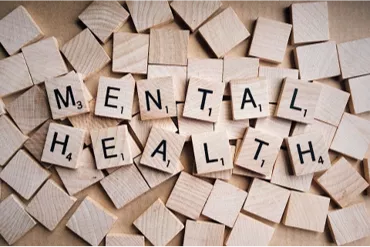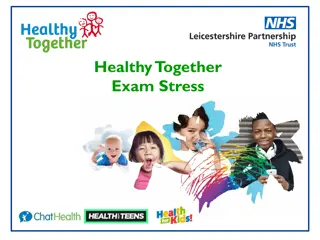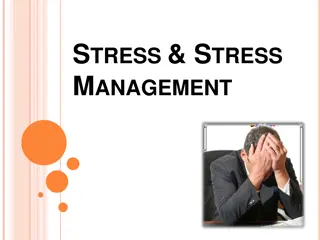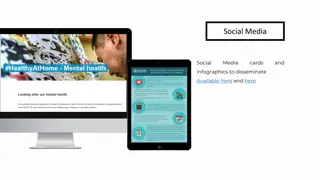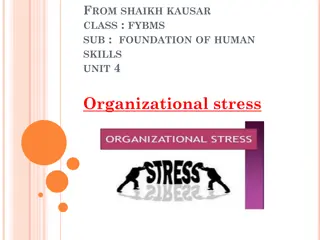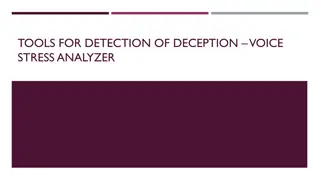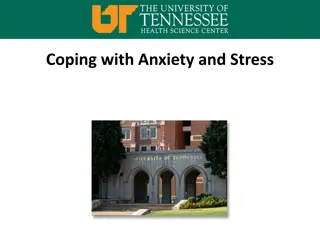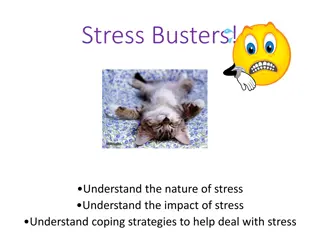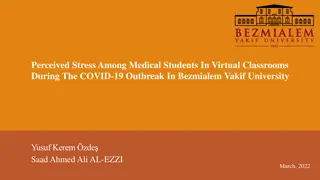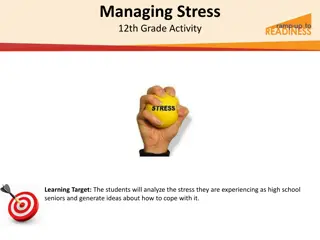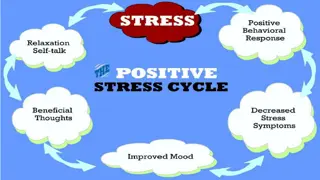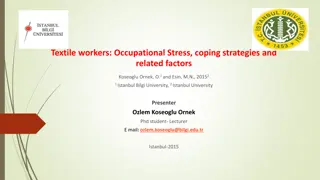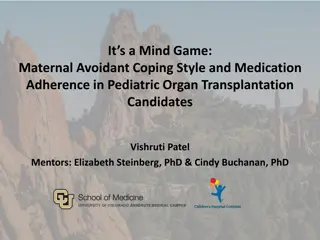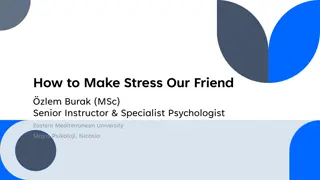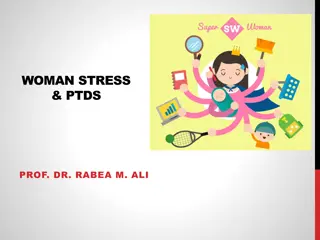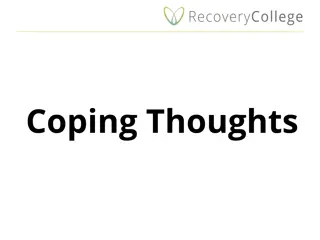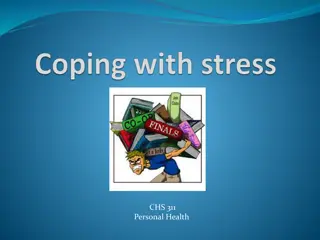Coping with Stress: Tips for Parents during Covid-19
In this article, Behavior Specialist Diane Holub from Royal ISD shares key insights on managing stress during Covid-19. She emphasizes the importance of mental health awareness, discusses common stressors faced by parents, and offers practical advice on recognizing and dealing with excessive stress. The article also touches on the challenges of homeschooling and provides guidance on seeking help when needed.
Download Presentation

Please find below an Image/Link to download the presentation.
The content on the website is provided AS IS for your information and personal use only. It may not be sold, licensed, or shared on other websites without obtaining consent from the author. Download presentation by click this link. If you encounter any issues during the download, it is possible that the publisher has removed the file from their server.
E N D
Presentation Transcript
Falcon Forum This one is for the adults!
May is Mental Health Awareness Month Hello Falcon Parents, My name is Diane Holub and I am the Behavior Specialist with Royal ISD s Special Education Department. In Falcon Forum we have created several videos on topics that are geared toward helping your children deal with the fallout from Covid 19. Well, in this short video I want to focus on you, the adult: The parents and the guardians of our students. May is Mental Health Awareness Month, so this is the perfect time to talk about taking care of our mental and emotional health as we deal with the stress of Covid 19.
Covid 19 has rocked our world. For most of us it has completely changed how we do business on a day to day basis. How we work, how we care for our families, and how we spend our free time. That is a lot of change. Change, even good change, usually results in STRESS. Stress is just a part of life, and everybody experiences stress at some time. And actually, a little bit of stress in our life can be a good thing. It can motivate us to get things done, to make changes. But today I want to focus on how to recognize when we are experiencing too much stress and what we can do about it.
Reasons to be Stressed Out Now: We have a lot of reasons to be stressed right now: Afraid of catching the virus Having Financial Issues Being Quarantined/Isolated And...we have to home school! The amount of stressors, and a person s ability to handle stress, are 2 factors that will determine the impact that stress will have on a household.
Households were there is one child, great internet access and a stay at home parent will still experience stress with homeschooling their child, but it will most likely be less than a household with multiple children, poor internet access and a parent who is an essential worker or is working from home. Even more difficult is the household that has children that require specialized programming for disabilities, medical issues or language barriers. Less stress Continuum of predicted stress Levels The struggle is real for all of you.
So what do we do? Royal ISD has tried to remove as many of these stressors as possible, but we know this is still a challenge for you as parents, just like it is for us. So let s talk about: How do we deal with this stress? How do we recognize when it is too much? And if it is too much. How do we get help?
How to manage stress On the Royal ISD website there are many resources that talk about ways to manage stress. One resource I like for adults and students is the Well Being Playbook. The link is below. Well-Being Playbook - A hands-on, start-anywhere guide to inform and empower your day-to-day actions and interactions. It covers the importance of meeting basic needs: Sleep, Nutrition, Water intake, Movement, and Mental Health breaks. It is about finding a balance. Doing the best you can do without sacrificing your physical or emotional well-being. If you can t find balance, eventually stress will take over, and you will start to feel signs of anxiety or depression.
A few Symptoms associated with Anxiety and/or Depression Anxiety: Feeling nervous or jittery Constantly worrying Increased Anger and Irritability Depression: Feelings of Sadness, worthlessness Having a Lack of Energy Loss of interest in former activities excessively Crying Anxiety and Depression: Changes in eating patterns: overeating or loss of appetite Excessive alcohol or drug use (self-medicating) Thoughts of Self-harm or suicide
When to get help? So how do you know when to get help? The rule of thumb is: If you are experiencing symptoms, of anxiety or depression for more than 2 weeks, without any relief, you should seek professional help. Anxiety or depression that sticks around for 2 or more weeks tells you that the stress has affected your physical body, and your neurological balance, and you will need professional/medical help to rebuild this balance.
What is the treatment? Sometimes the answer is a simple as lifestyle changes. Sometimes it is counseling. Sometimes it is a medical intervention. But most of the time, it is a combination of several approaches. But there is help.
How do I get help? If you, or someone you know, is showing symptoms of depression or anxiety here are some ways you can get help. *Share your concerns with trusted adults. Start by reaching out to your personal support system. This might be your family, your friends co-workers or a religious leader. They may have some great suggestions for things you can do to reduce your stress. Venting to another rational adult is helpful. Venting to your children, or on social media, is usually not helpful. Your personal support system can also help you decide if you need to seek professional help. If you need to seek professional help...l
Getting help continued. *Talk to your family doctor. He can either design and execute a treatment plan himself, or refer you to specialist. *Use the telehealth conference option if provided by your insurance company in order to find counselors or specialist in your area that are covered by your insurance. *Contact TEXANA Behavioral/Mental health center which is located right here in Brookshire. They provide case management, counseling and psychiatric consults on a free or sliding fee scale for adults and children.. *Contact Waller County United Way Office located here in Brookshire for free counseling through Family And Youth Services (FAYS) program, Depelchin and multiple other programs. *Call 800-273-TALK Crisis Hotline
Bottom Line Monitor your level of stress. If your stress is reaching an unhealthy level and causing symptoms of depression or anxiety. Reach out and get help. When I started, I said this video presentation was for the adults and not the children. Well, full disclosure: I lied a little. I lied because we all know that children are sponges. They pick up on everything that the adults are feeling and notice everything the adults are doing. The greater level of stress you have, the greater level of stress that spills over to them. So remember when you take good care of yourself, you are going to be able to take even better care of your children. Thanks for spending some of your precious time with me. I wish you a stress free week!















